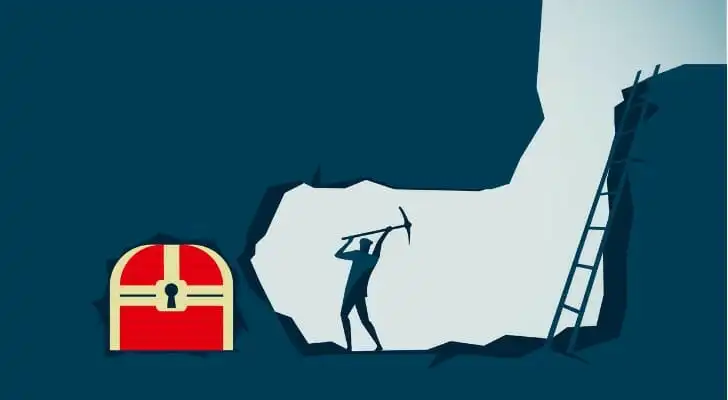Inheriting assets, whether anticipated or not, can enhance your financial situation. However, without proper planning or oversight, these funds may become temporarily inaccessible. There may even be unclaimed funds from deceased relatives waiting for you that you’re unaware of. So, how do you locate these assets? And what happens to them if you don’t? If you believe you may have unclaimed money left by relatives, the steps below can help you track it down.
A financial advisor can offer advice on how to invest any inherited funds wisely.
Can You Claim Unclaimed Money From Deceased Relatives?
The short answer is yes, you can claim money from deceased relatives. If you believe that you’re entitled to money left behind by a deceased relative, then you can make a legal claim to it under the inheritance laws of your state. The types of financial assets you may be able to claim include:
- Bank accounts
- Real estate
- Vehicles
- Certificates of deposit
- Bonds
- Stocks
- Retirement accounts
- Insurance policies
- Annuities
- Contents from safe deposit boxes
- Royalties
- Utility deposits
In some cases, you may be named as a beneficiary to an asset. For instance, your parents might name you as the beneficiary to a life insurance policy. In that case, you’d automatically have a claim to the proceeds of the policy, regardless of state inheritance laws.
Filing a claim for a life insurance policy that you’re the beneficiary of usually means presenting proof of identity as well as a copy of the death certificate. So if you haven’t obtained that yet, then you’d need to do so first. Other types of accounts that can have named beneficiaries include 401(k) plans, IRAs, payable-on-death accounts and trusts.
The only time you wouldn’t be able to claim an asset or unclaimed money is if your relative specifically named someone else to receive it in their will. If the will is legally valid, you’d have to challenge its terms in court. A judge would then decide whether to uphold the will or honor your claim to those assets.
What Happens to Unclaimed Money From Dead Relatives?

There are different reasons that money may go unclaimed when someone passes away. Going back to the previous example, it’s possible that parents could take out life insurance policies without informing their children simply because they aren’t comfortable talking about money or estate planning. So you may not even know the policy exists.
Another possibility is that a relative could have opened bank accounts and then forgotten about them. Unless they have a conservator or someone else they trust to manage their financial affairs, it’s entirely possible that assets could slip through the cracks. The result is that those accounts become unclaimed money.
The good news is that unclaimed money doesn’t just disappear. It can, however, eventually end up being turned over to the state if no one comes forth to claim it. Every state has laws about unclaimed property and while the timing varies, they all require financial institutions to turn over unclaimed assets after a period of time has passed. For example, if no one comes forward after five years then the state may take possession of unclaimed assets from banks and other financial companies.
The state then holds on to these assets until someone comes forward to claim them. States generally don’t impose any time restrictions on how long you have to approach the state for unclaimed funds. If you never go in search of unclaimed money from deceased relatives, your estate could still claim those assets once you pass away if state inheritance laws allow it.
How to Find Unclaimed Money From Deceased Relatives
Finding unclaimed money from deceased relatives starts with making an inventory of the types of assets you think you need to look for. Again, that can include things like bank accounts, real estate, insurance policies, retirement plans, investment accounts and other assets.
Once you have a list of possible assets to track down, you can start looking for them. Fortunately, there are several websites and online tools that make this part of the process easier. Some of the places you can look online for unclaimed money include:
- MissingMoney.com
- Unclaimed.org (from the National Association of Unclaimed Property Administrators, or NAUPA)
- TreasuryDirect.gov (to find unclaimed Treasury securities)
- FDIC.gov and NCUA.gov (to look for unclaimed accounts at failed banks or credit unions)
- PBGC.gov (for unclaimed pensions)
- UnclaimedRetirementBenefits.com (to check for unclaimed 401(k)s and other retirement plans)
- ACLI.com (to look for unclaimed group life insurance policy benefits)
In terms of where you can look for unclaimed money from deceased relatives offline, you can check with your state’s office of the treasurer. Your state may have a specific division set up just for unclaimed assets that can help you find assets you may be entitled to receive.
You can also check local and state property tax records for vehicles, land or homes that your deceased relative may have owned. This won’t definitively tell you if you have a claim to those assets; that’s determined by your state’s inheritance laws. However, it could point you in the right direction for claiming if you believe you’re entitled to inherit.
Unclaimed money from deceased relatives can often be found at the state level, where it is held until rightful heirs come forward. This money typically originates from forgotten bank accounts, uncashed checks, insurance policies, or other financial assets that were not transferred to beneficiaries. Each state in the U.S. has its own unclaimed property program, which is responsible for safeguarding these funds. By understanding how these programs work, you can take the first step toward recovering any unclaimed assets that may belong to your family.
Finally, consider what you can do to avoid a situation where you’re trying to locate unclaimed money from deceased relatives. Talking to your parents about their estate plan, for example, can help you avoid situations later in which bank accounts, life insurance policies or assets go missing.
A trusted financial advisor can help with navigating these discussions and creating a plan for managing your parents’ assets during their lifetime and beyond.
Bottom Line

Finding unclaimed money from deceased relatives may require a little detective work, but it can be easier than you might think. If you suspect that you have some unclaimed inheritance money floating around, it’s important to take action to find it. Otherwise, it could remain the property of the state indefinitely. The good news is that there are numerous resources to help you determine whether your deceased relatives have left unclaimed money, whether you may be entitled to it and how you can access it.
That process often comes with documentation requirements and security considerations, especially when claims involve estates or multiple heirs.
“If you’re going in search of unclaimed money from a family member who’s passed away, be prepared to show proof of your relationship and your claim to the funds. Proof can be in the form of a government-issued ID, Social Security number, or birth certificate. You might also need to present a copy of their will or a death certificate. Only share this kind of sensitive information online if it’s a state-sponsored website or a secure financial institution,” said Tanza Loudenback, CFP®.
Tanza Loudenback, Certified Financial Planner™ (CFP®), provided the quote used in this article. Please note that Tanza is not a participant in SmartAsset AMP, is not an employee of SmartAsset and has been compensated. The opinion voiced in the quote is for general information only and are not intended to provide specific advice or recommendations.
Financial Planning Tips
- If you have an inheritance coming your way associated with unclaimed money from deceased relatives, consider talking to a financial advisor about the best ways to use it. Finding a financial advisor doesn’t have to be hard. SmartAsset’s free tool matches you with vetted financial advisors who serve your area, and you can have a free introductory call with your advisor matches to decide which one you feel is right for you. If you’re ready to find an advisor who can help you achieve your financial goals, get started now.
- Use this capital gains calculator to see how the gains you make when selling stocks will be impacted by capital gains taxes in your location.
- Consider what you can do to help your heirs avoid an unclaimed money situation. For example, if you don’t have a will in place yet, making one can help you avoid intestacy. It can also be helpful to review your beneficiary designations for things like life insurance policies and retirement accounts to make sure your assets go where you want them to after you pass away. Establishing a payable-on-death (POD) account or a trust may also need to be part of your financial plan.
Photo credit: ©iStock.com/erhui1979, ©iStock.com/Julio Rivalta, ©iStock.com/Rawf8
